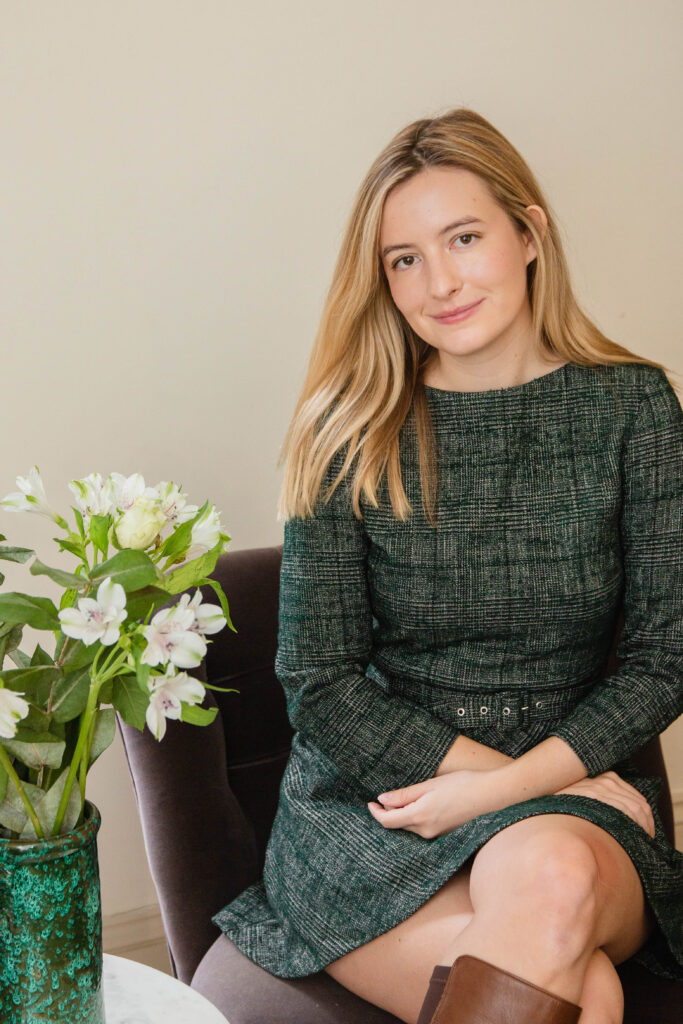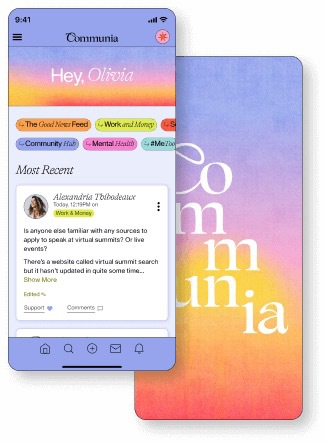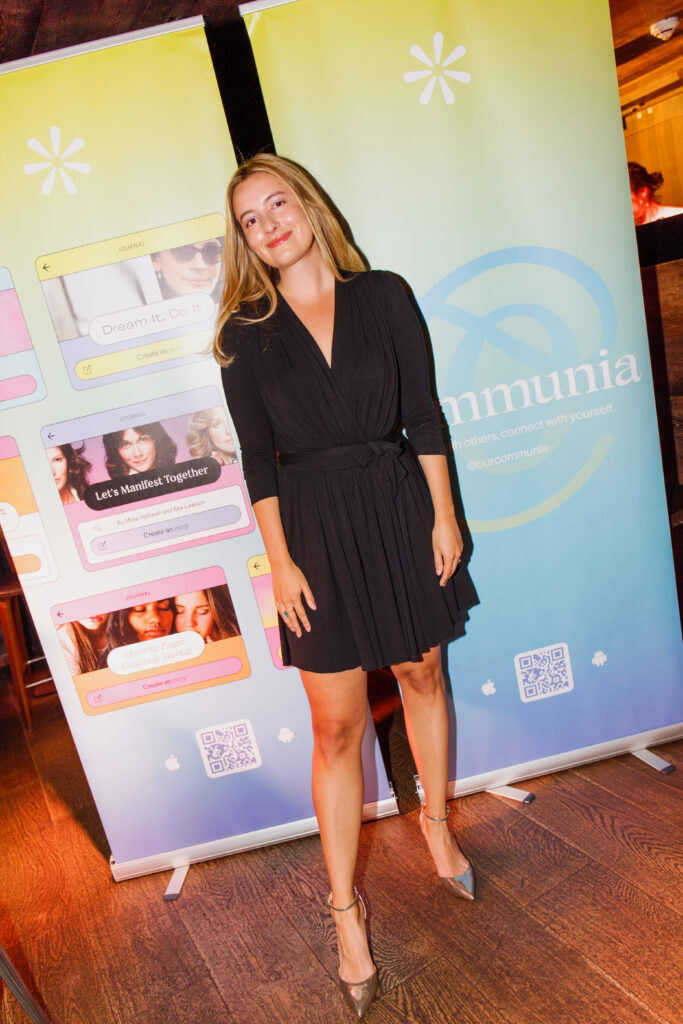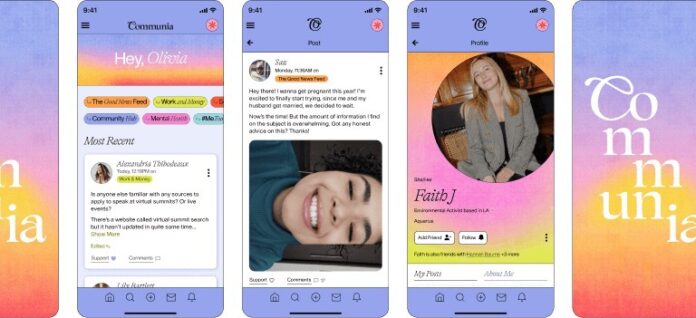( ENSPIRE She Did That ) Olivia DeRamus Creates New Social Media Platform Communia That Aims to Protect and Encourage Women
ENSPIRE Contributor: Megan Sydow
In the world we live in, women’s safety is consistently compromised, and social media has added fuel to that already lit flame. However, a new social media platform by the name of Communia is meant to be a safe space that will combat this ongoing issue. Communia will offer a platform for women to come together and connect in a safe environment.
Olivia DeRamus, founder and CEO of Communia, is a woman in tech who has experienced sexual assault. Because of her experiences, she believed that an app that women could go to find support from thousands of others—no matter where they are or how tough the issue they’re dealing with—was long overdue.

Communia already stands out from the rest. It is the first of its kind and uses a business model that protects women from online harassment and puts the user’s well-being first. DeRamus created it with the intention of being a safe space for women while using similar social aspects of other social media, but different safety tactics by keeping it free from trolls, harassment, and sexist policies.
“We’re combining (and improving) all the things you love about platforms like Pinterest, Instagram, and Twitter with established well-being tools like journaling to create a more exciting, helpful, and safer digital world,” DeRamus says.
What Communia Offers
Some of the services Communia offers include a personalized news feed, an introduction button to make it easier to find new people, and well-being tools such as the journaling ability mentioned above. Users can find separate topical feeds on subjects such as sex and relationships, money, #MeToo, and mental health. These feeds include expert resources on the topics. Anonymous posting for sensitive questions and support buttons instead of likes removes pressure from public metrics and judgment. DeRamus says the best element of the app, however, is the community support users receive from asking a question or seeking advice.
Communia Self, a subcategory of Communia, is where users can find the well-being journaling tool. It is fully customizable, supports multi-media, and gives users the options to use it privately, publicly, and collaboratively. There is also an entirely separate newsfeed dedicated to public journals from users.
“It’s very cool seeing all the ways people are using this feature,” says DeRamus, “from travel diaries to wellbeing tips and discussing things like anxiety or creative inspiration.”

Another stand-out aspect of Communia is its emphasis on user control and safety. Communia uses two-factor verification by requiring both an email address and photo or ID verification to create an account. If users cannot provide both of these, they are restricted access to the #MeToo section and are unable to use the comment and messaging sections of the app.
Users also have the right to anonymity after registering for the app. Once verified, they can hide their profile when posting on community boards to protect their identities and remove any barriers to seeking support. Communia’s zero-tolerance policy is enforced and monitored by humans, not bots, to ensure optimal safety for every user.
Why Communia Matters
Creating spaces such as Communia is important for women since the world we live in can be so unsafe for them. In a study by Plan International, up to 58% of girls reported being harassed online. The abuse they faced even drove some to completely abandon social media altogether. Communia’s own survey of 300 women and non-binary people concluded up to 90% of them reported feeling unsafe on social media. 87% have suffered a negative experience online.
“Social media can benefit our lives tremendously, but when it’s not a safe environment, we’re barred from being able to take advantage of all the good it can bring into our lives,” says DeRamus. “Humans are inherently social creatures, and when we feel isolated in a world that on the surface seems more connected than ever, that’s pretty harmful.”

DeRamus believes women should be able to express themselves authentically and get help when they need it in a safe way. She says navigating the highs and lows can be much easier when women have a community to get help, advice, and support from.
Aside from Communia, everyday citizens can make a difference in making women feel safer both on the internet and in real life. DeRamus says the two things we can do are to practice empathy and consent. “It really is that simple. Think twice before you post that comment, slide into their DM’s, or approach them on the street. How will your action impact the other person?” DeRamus says big tech companies also need to do their part by not continuing to dismiss the basic needs of people who make their platforms successful.
An Ambitious Future
DeRamus’s plans for Communia are focused on making it the best platform it can be by creating a better digital world for women and marginalized genders. One of the ways she plans to do this is by creating an algorithm that is not focused on competition.
“One thing I will say is that I’m excited to provide a platform where experts don’t have to battle an algorithm or participate in trends just to communicate helpful information to their audiences,” DeRamus says. “Where, instead of one-off pieces of content, you can create more long-term bodies of digital work, where all you have to worry about is whether it’s helpful for you and your community.”
Related Articles: Randi B. Diversity Expert Creates Social Media Sites For Important Conversations, NO MORE Weekly Awareness is Committed to Ending Violence







